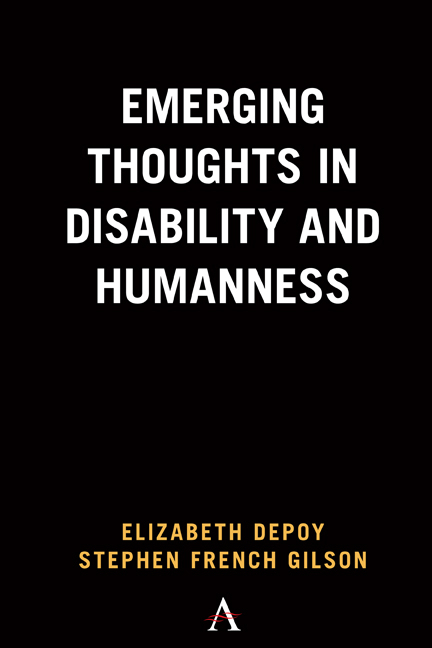Chapter 5 - The Tool Kit
Published online by Cambridge University Press: 13 May 2022
Summary
Legitimating humanness requires a plethora of tools, some narrowly delimited to a field of knowledge and others broadly analytic and synthetic. In this chapter, we examine a host of methods that are used to confer humanness status, beginning with the nature of knowledge and philosophical thought itself, and then proceed to narratives and imagery of science. The non-prototypical body is front and center in contrasting the human and the something else, and thus has a critical job in the humanness enterprise as well as in its opposite, nonhuman, or its contingent, akin to but not fully human.
Tool one—humanization, infrahumanization, and dehumanization as philosophical construction
Philosophers have concerned themselves with reasoning and articulating the nature of humans as a central job function. In particular, they prattle about the ontology of humanness, its existence, and its essences. The primary, though not the only, tools of the ontological trade involve definition, argumentation, example, contingent and nonexample, logic, speculation, and convincing rhetoric (Williamson, 2020). Nevertheless, the adage where one sits comes full circle as thinking and articulation need a starting point from which to unfold in a linear or meandering logic structure. Mastering and employing philosophical tools can attract followers to one's theoretical point of view, change minds, and convince the listener about the nature of reality, the “real human”, and the ones who do not quite fit the bill.
Consider the exemplar arguments. According to Bourke (2011, 15):
To understand the instability of definitions of who is truly human, we need history. Stories and myths enable people in the past (and today) to make sense of a thoroughly bewildering world populated by an unimaginable number and range of sentient beings. In the words of Jacques Derrida, paying attention to the full community of sentient beings “ ‘poses grave definitional and practical threats to the discourse of humanism’ which attributes ‘authority and autonomy […] to the man […] rather than to the woman, and to the woman rather than to the animal.’ “ By looking back into the past we can trace competing ways in which “the human” and “he animal” have been imagined.
- Type
- Chapter
- Information
- Emerging Thoughts in Disability and Humanness , pp. 47 - 62Publisher: Anthem PressPrint publication year: 2022



